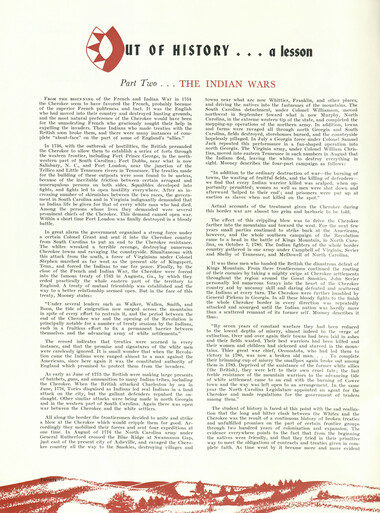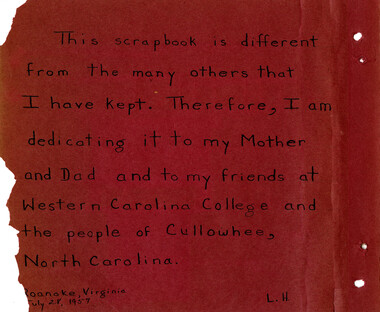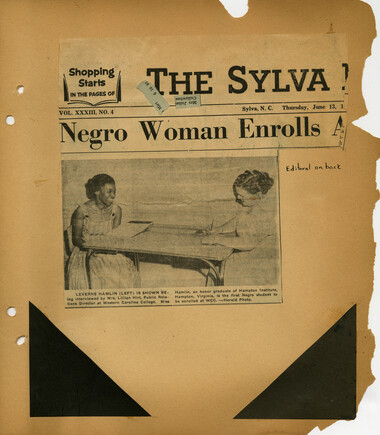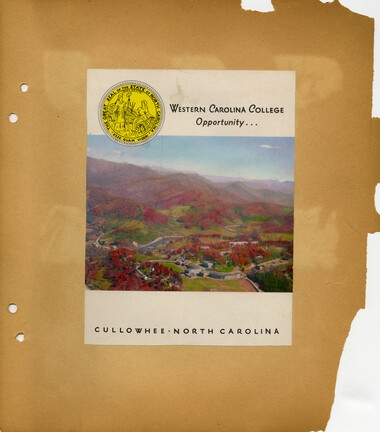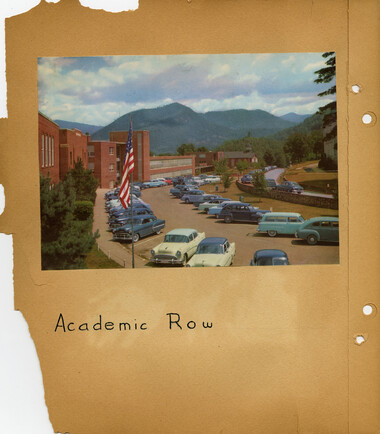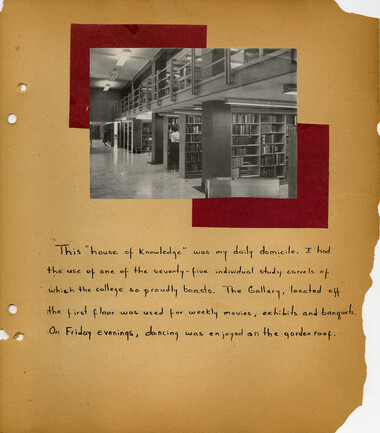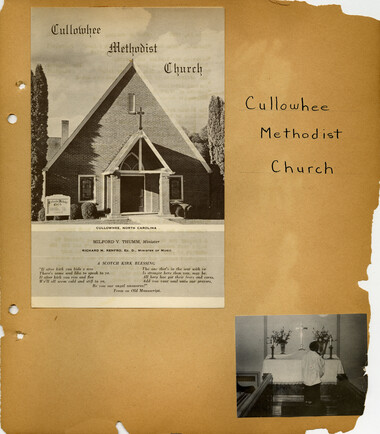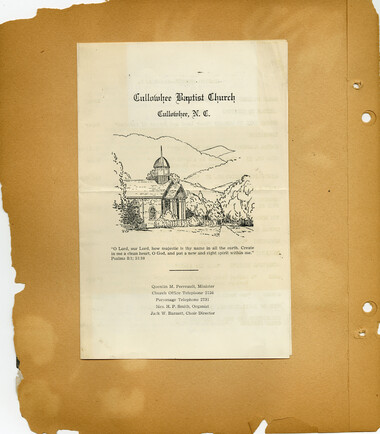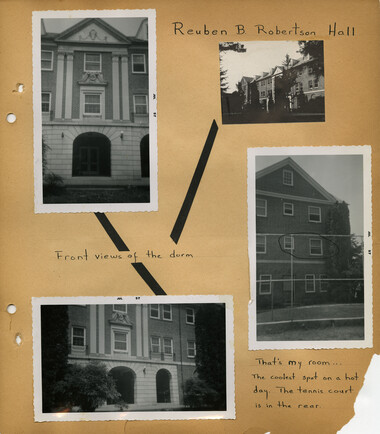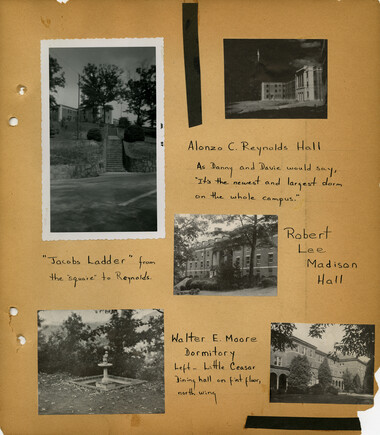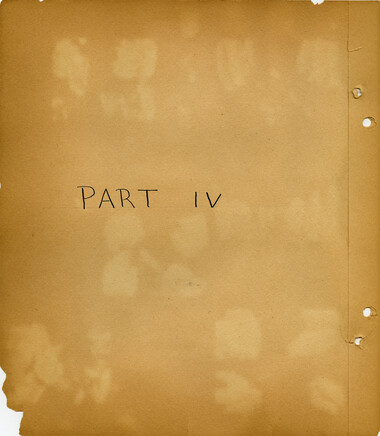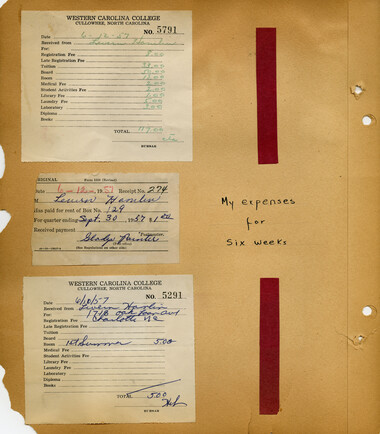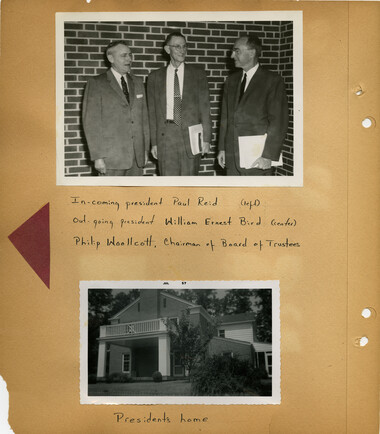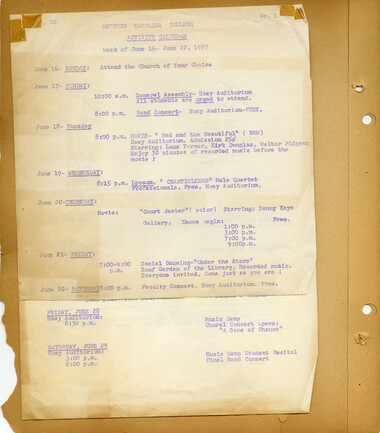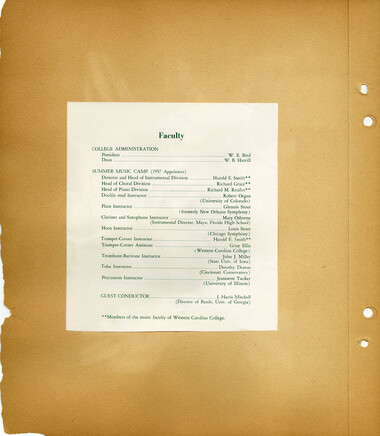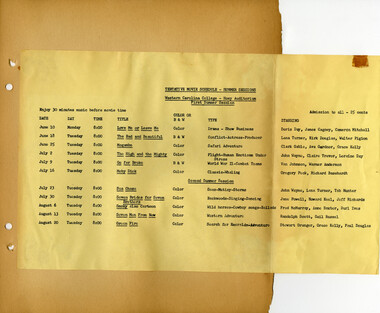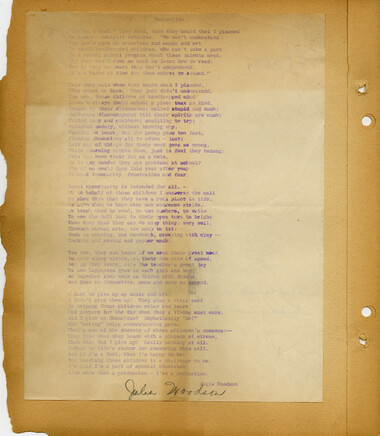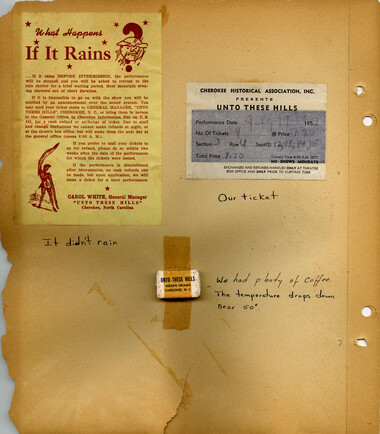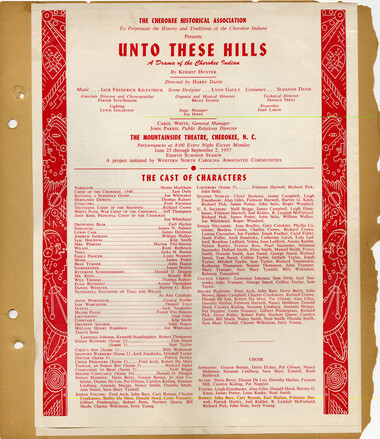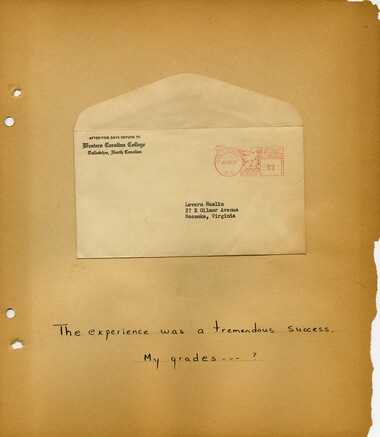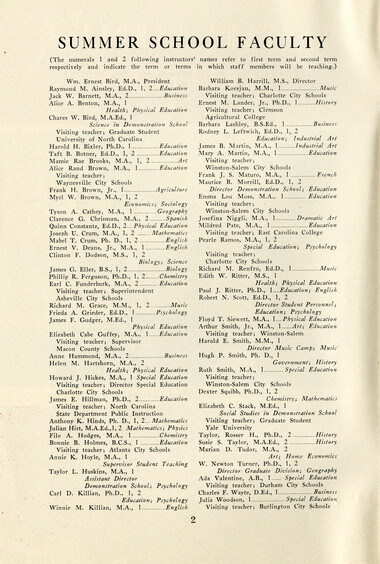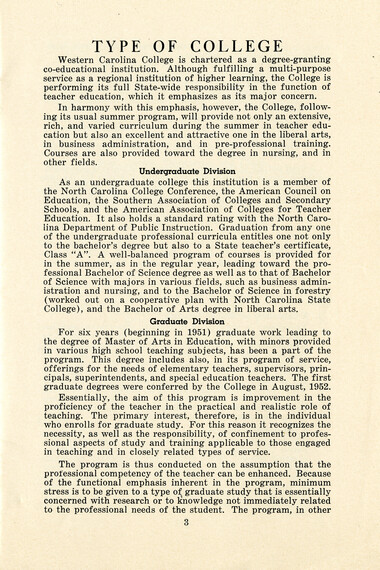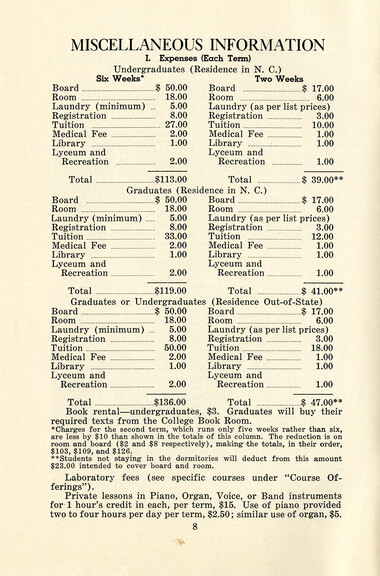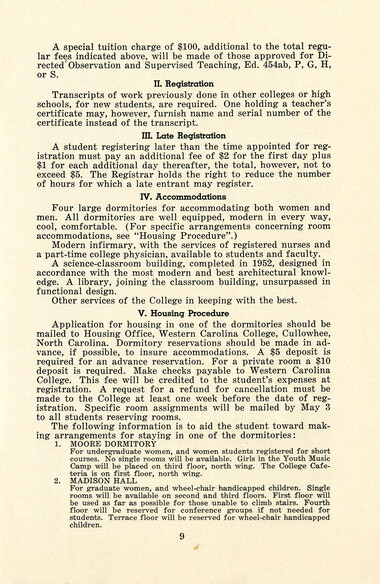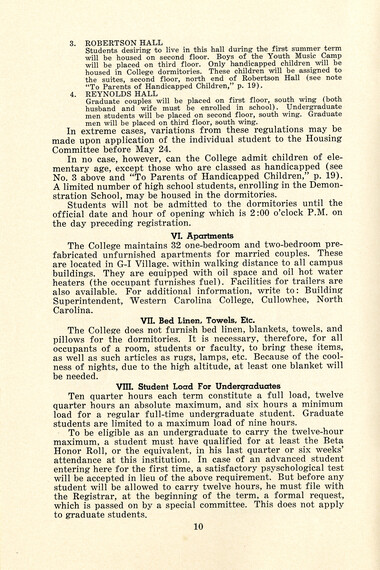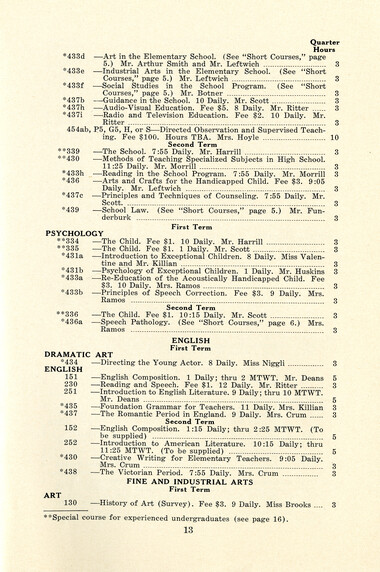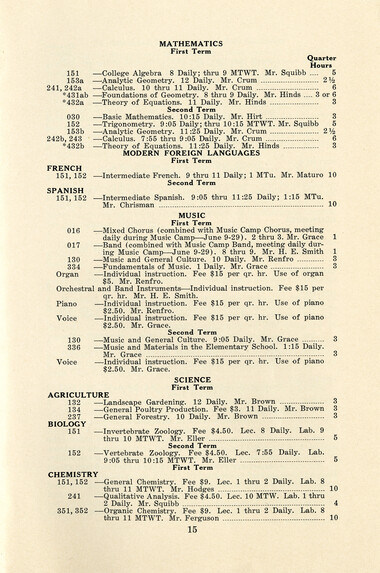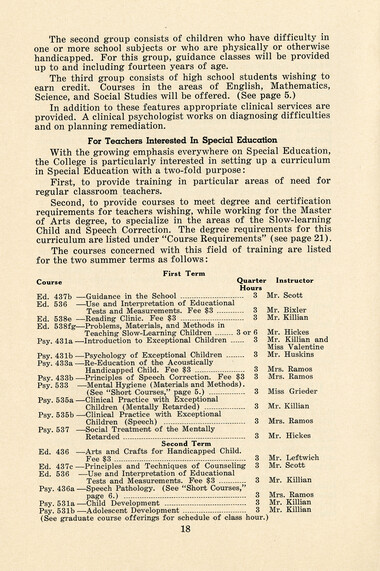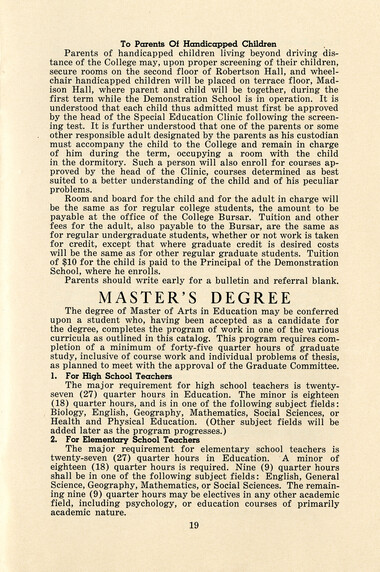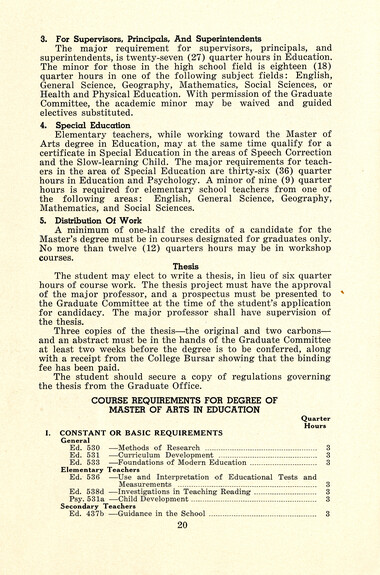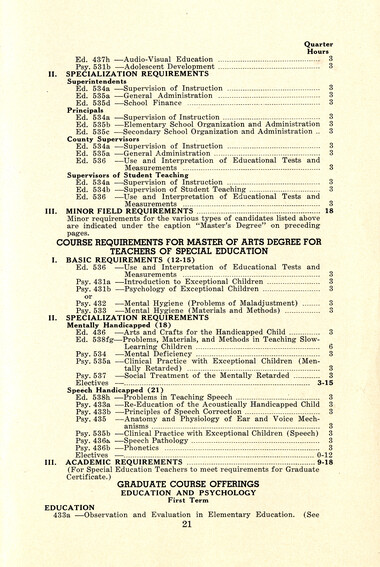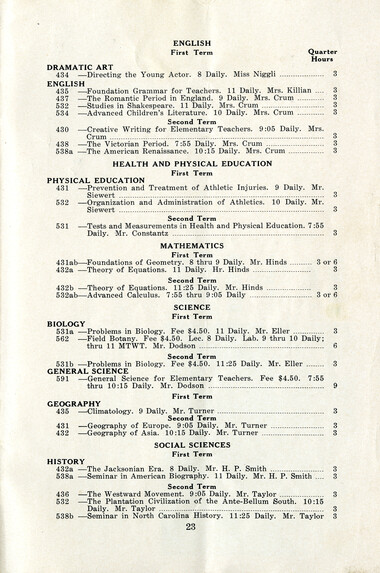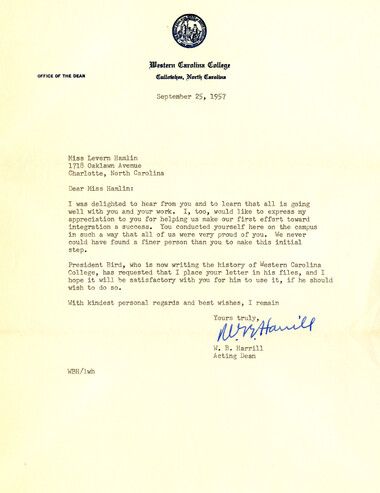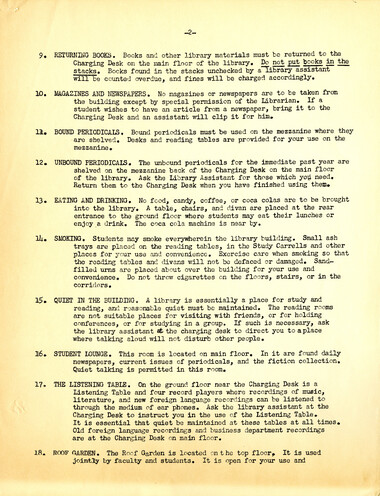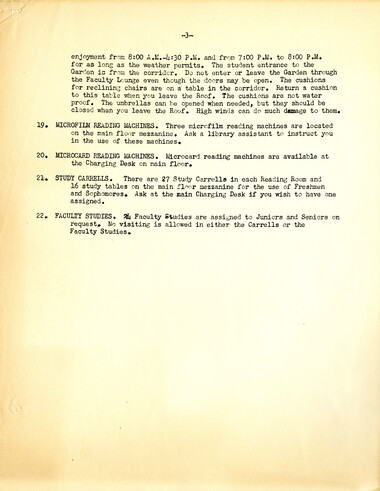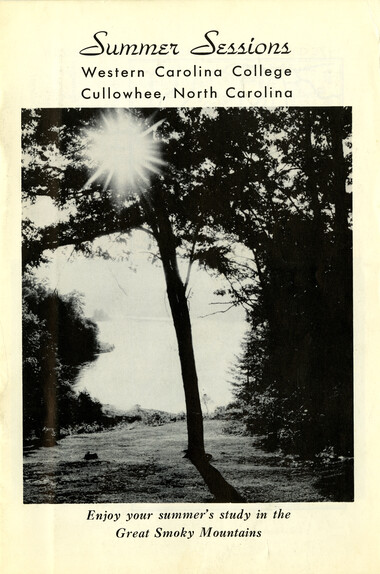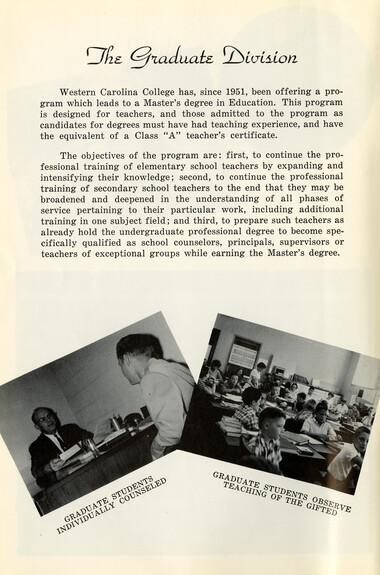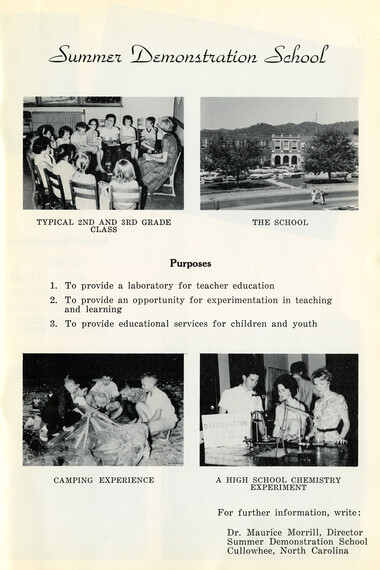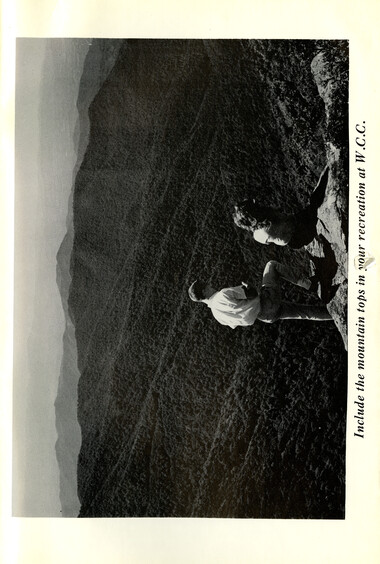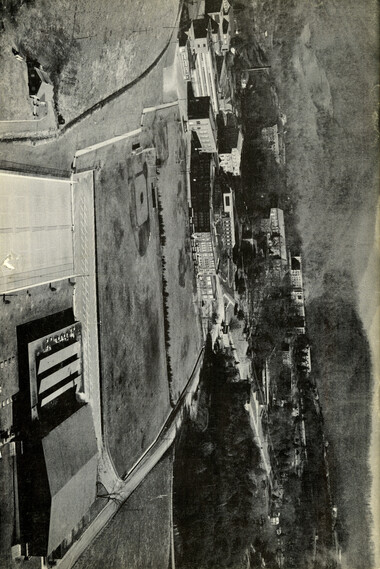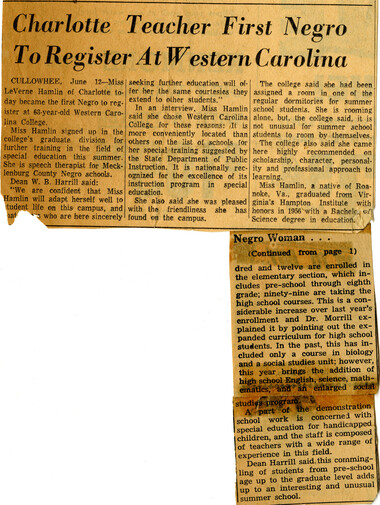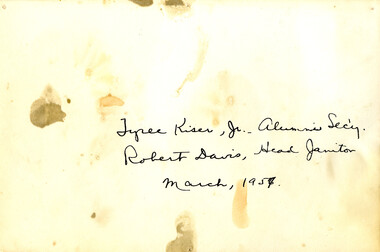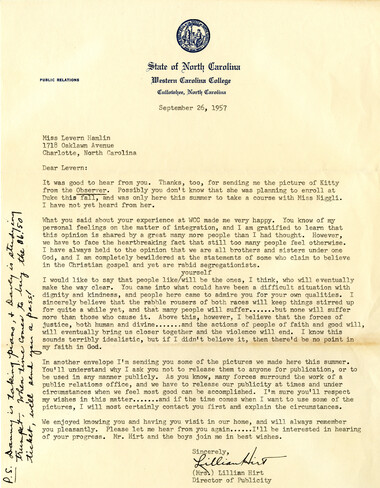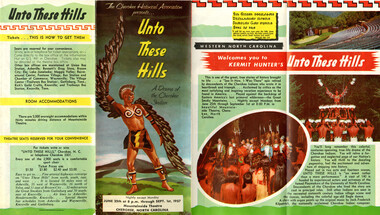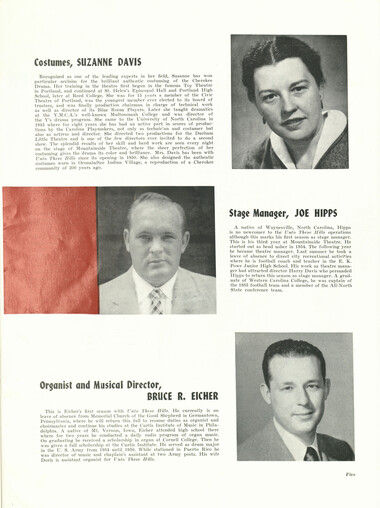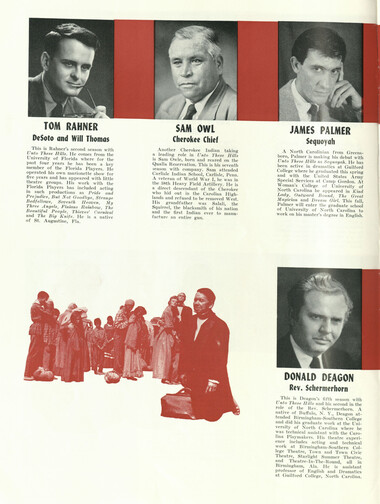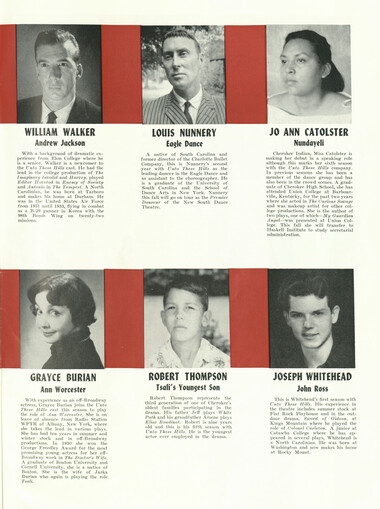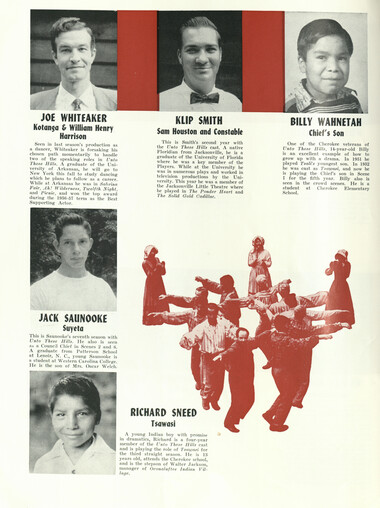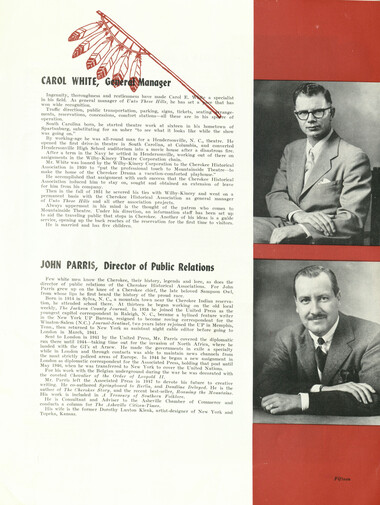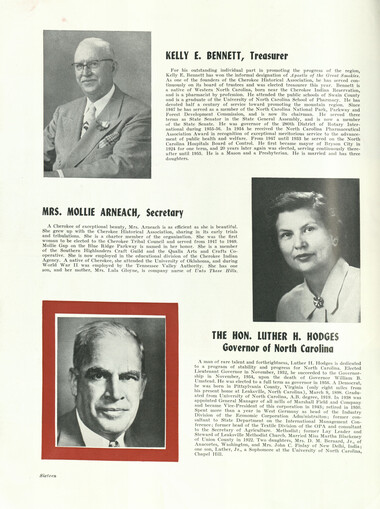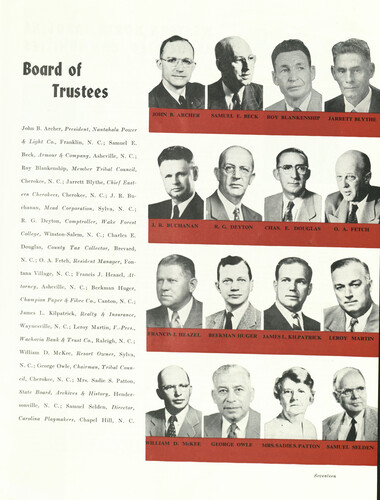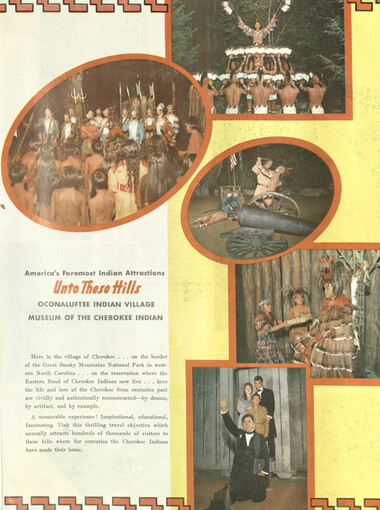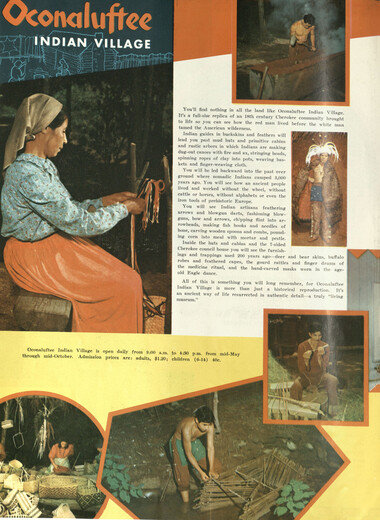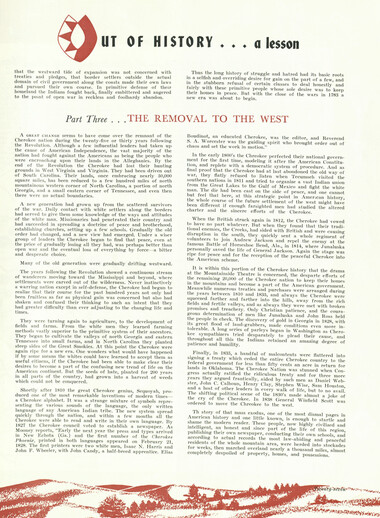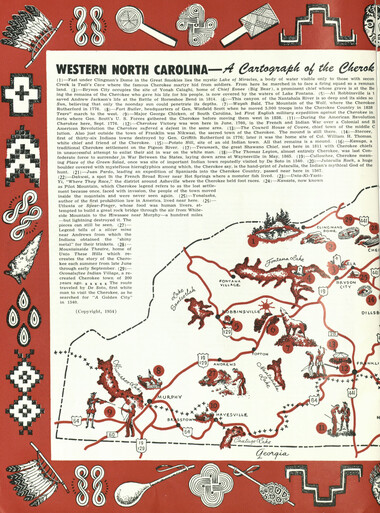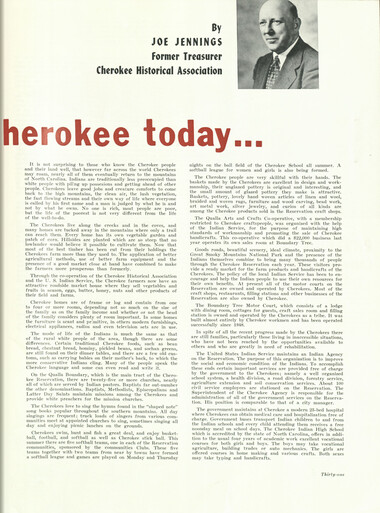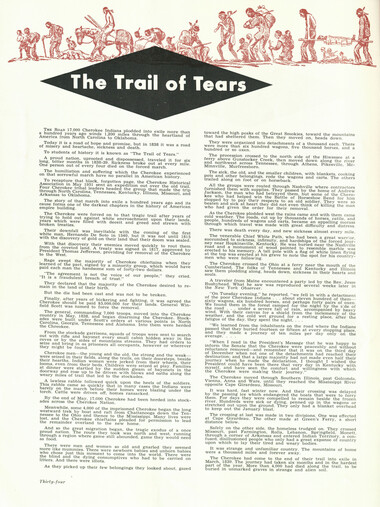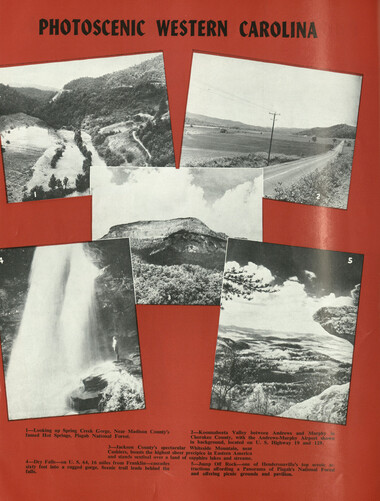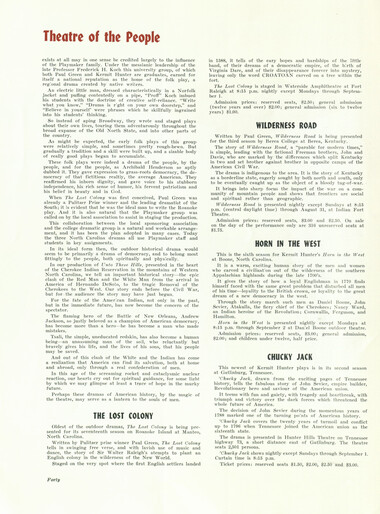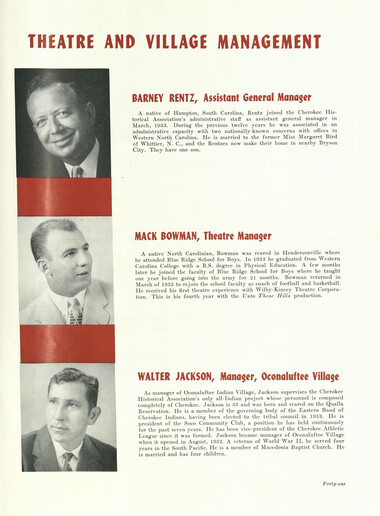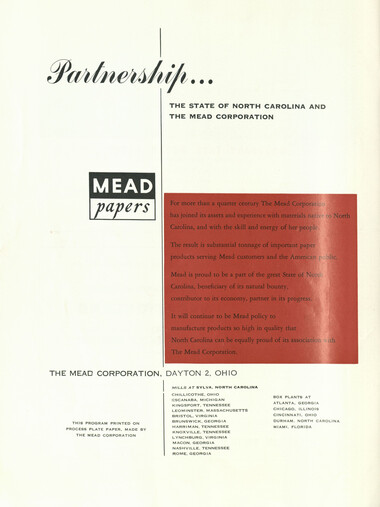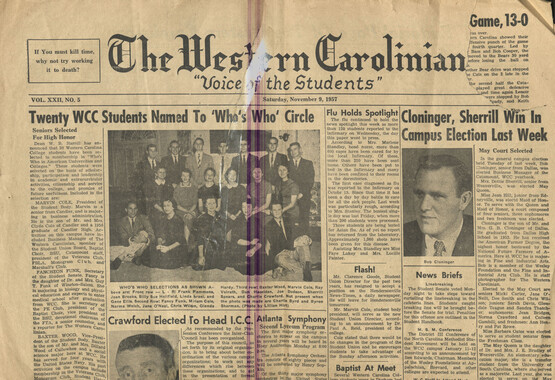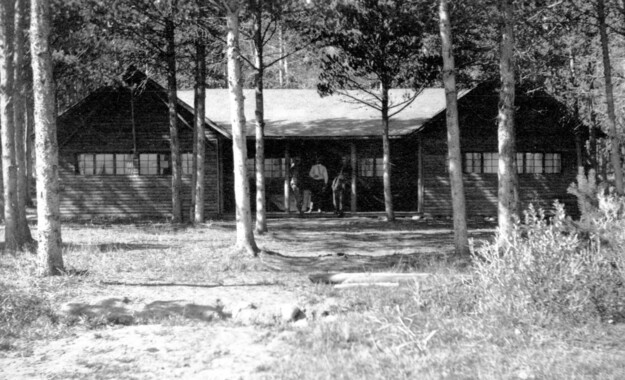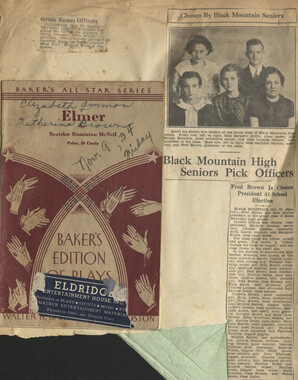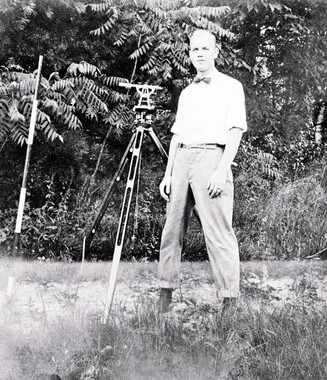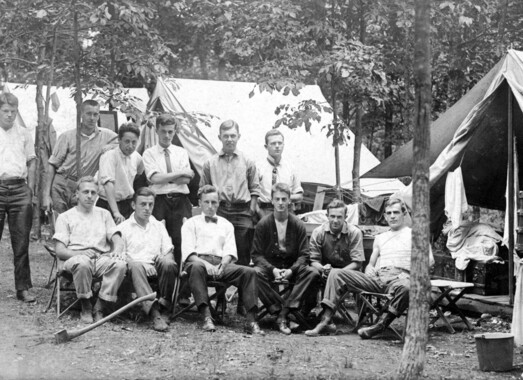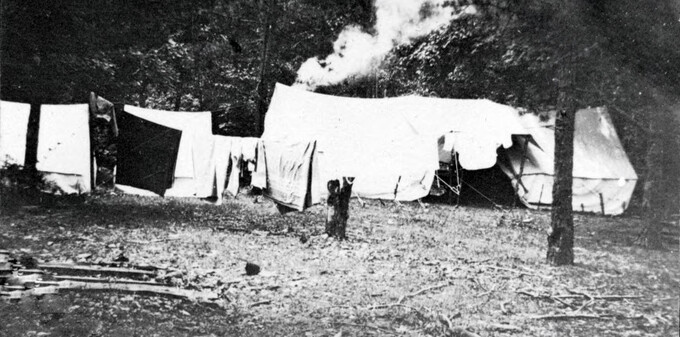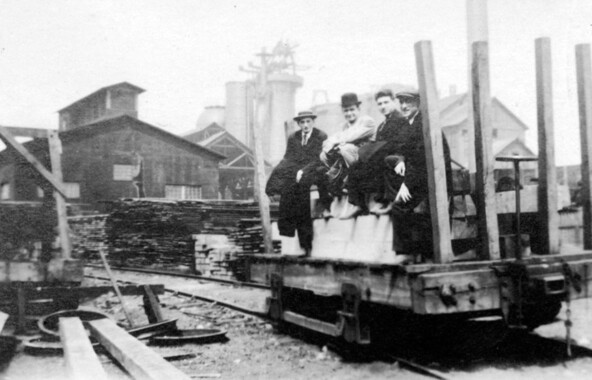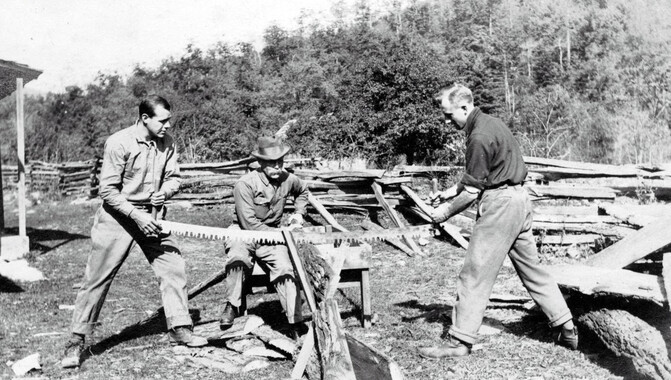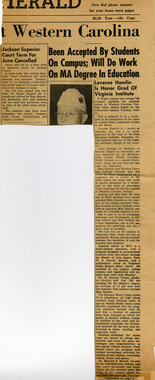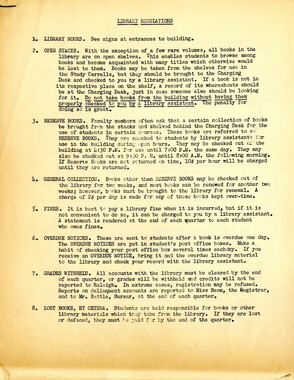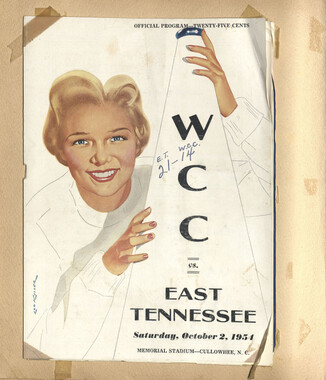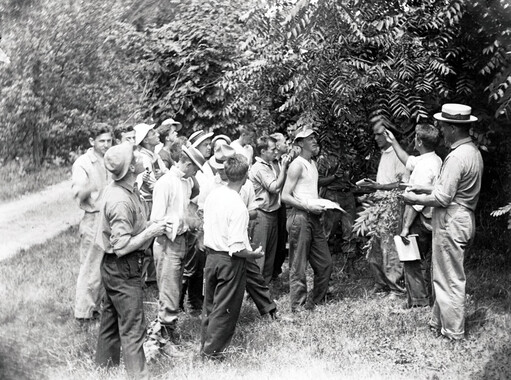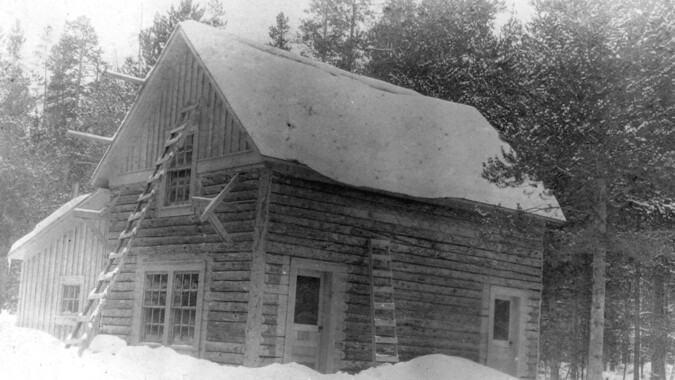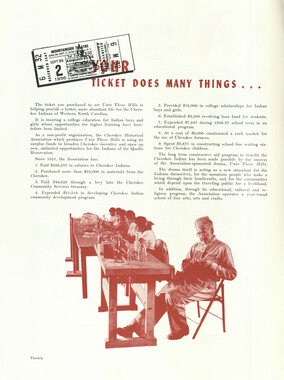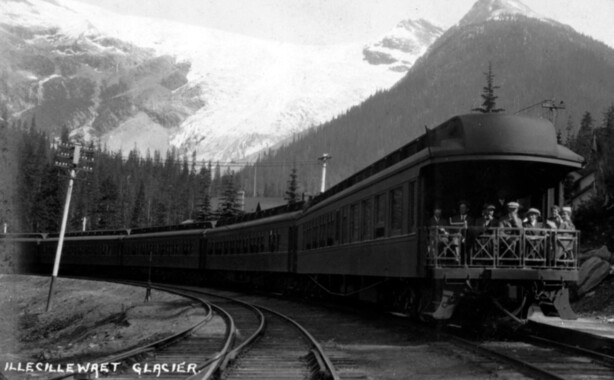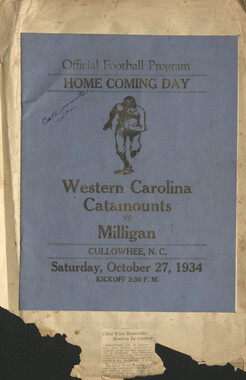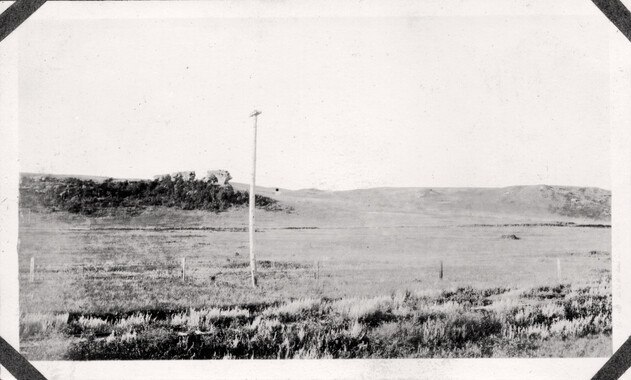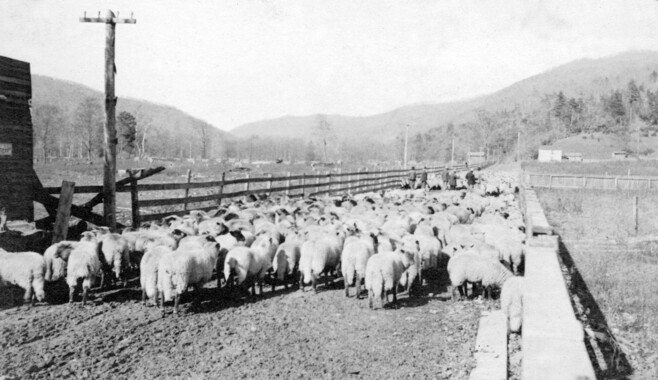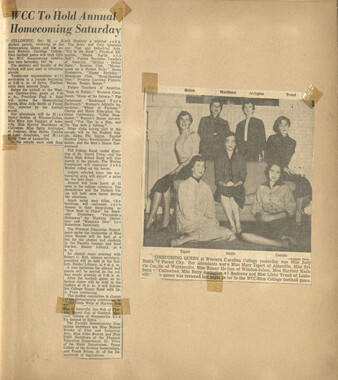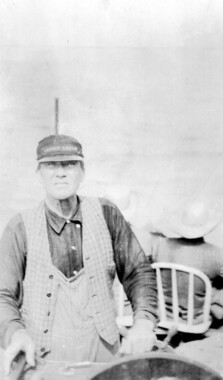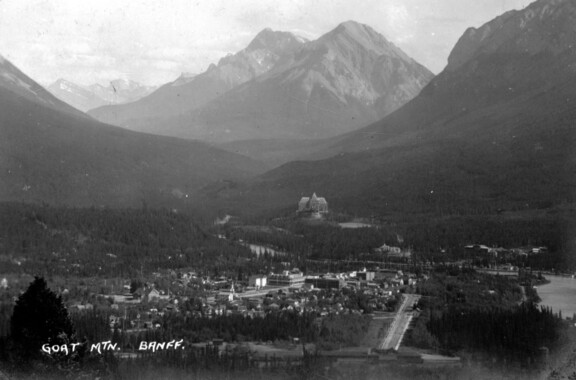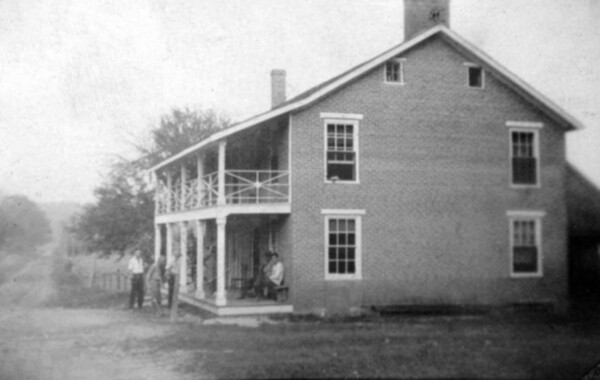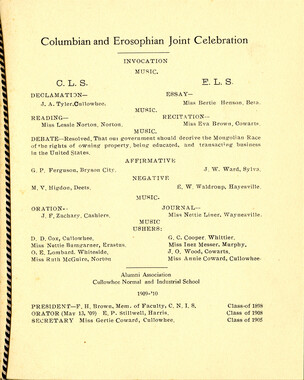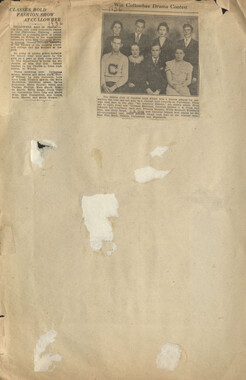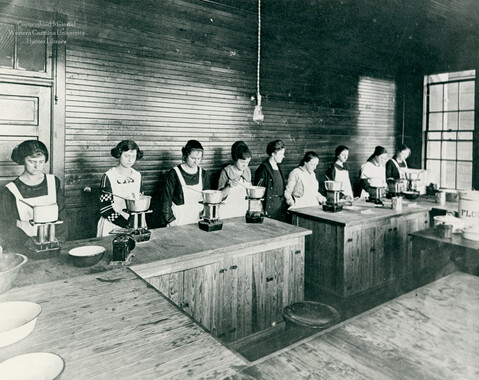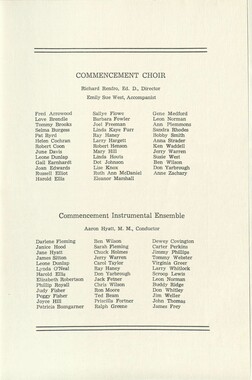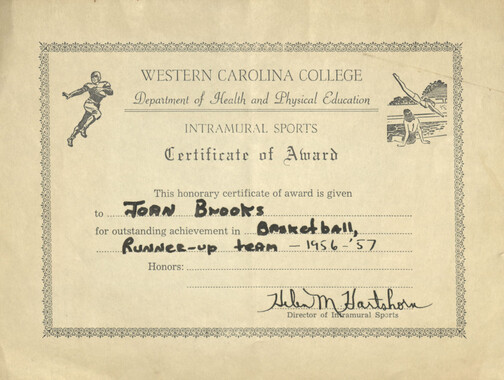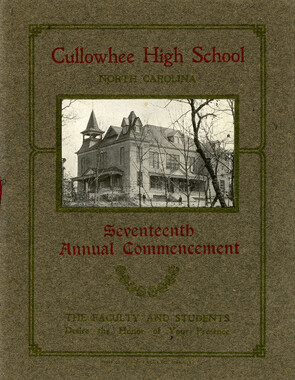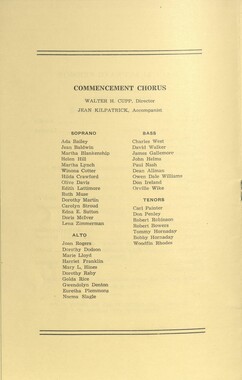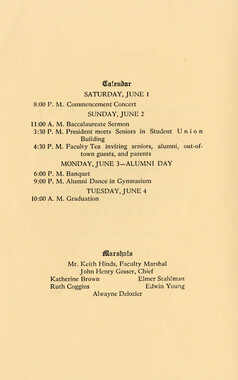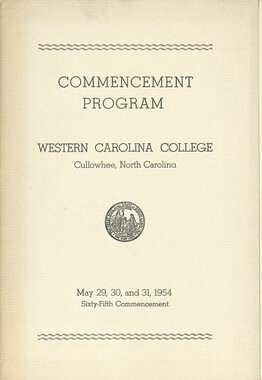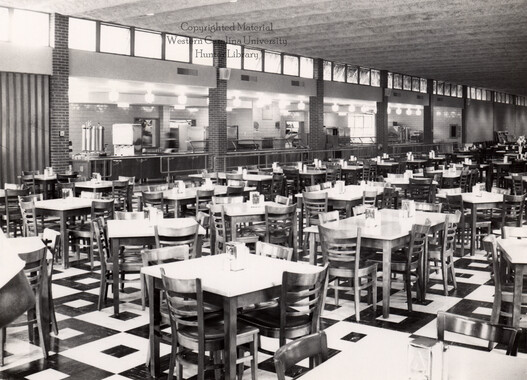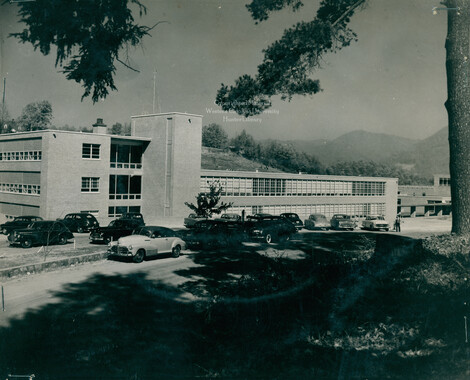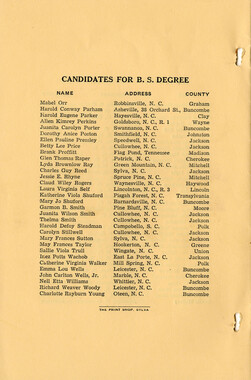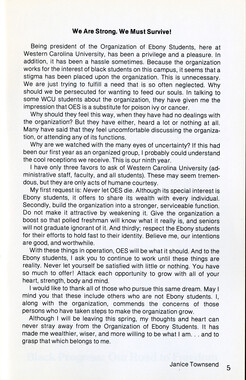Western Carolina University (20)
View all
- Canton Champion Fibre Company (2308)
- Cherokee Traditions (293)
- Civil War in Southern Appalachia (165)
- Craft Revival (1942)
- Great Smoky Mountains - A Park for America (2767)
- Highlights from Western Carolina University (430)
- Horace Kephart (941)
- Journeys Through Jackson (154)
- LGBTQIA+ Archive of Jackson County (24)
- Oral Histories of Western North Carolina (314)
- Picturing Appalachia (6772)
- Stories of Mountain Folk (413)
- Travel Western North Carolina (160)
- Western Carolina University Fine Art Museum Vitreograph Collection (129)
- Western Carolina University Herbarium (92)
- Western Carolina University: Making Memories (708)
- Western Carolina University Publications (2283)
- Western Carolina University Restricted Electronic Theses and Dissertations (146)
- Western North Carolina Regional Maps (71)
- World War II in Southern Appalachia (131)
University of North Carolina Asheville (6)
View all
- Allanstand Cottage Industries (62)
- Appalachian National Park Association (53)
- Bennett, Kelly, 1890-1974 (1388)
- Berry, Walter (76)
- Brasstown Carvers (40)
- Carver, George Washington, 1864?-1943 (26)
- Cathey, Joseph, 1803-1874 (1)
- Champion Fibre Company (233)
- Champion Paper and Fibre Company (297)
- Cherokee Indian Fair Association (16)
- Cherokee Language Program (22)
- Crowe, Amanda (40)
- Edmonston, Thomas Benton, 1842-1907 (7)
- Ensley, A. L. (Abraham Lincoln), 1865-1948 (275)
- Fromer, Irving Rhodes, 1913-1994 (70)
- George Butz (BFS 1907) (46)
- Goodrich, Frances Louisa (120)
- Grant, George Alexander, 1891-1964 (96)
- Heard, Marian Gladys (60)
- Kephart, Calvin, 1883-1969 (15)
- Kephart, Horace, 1862-1931 (313)
- Kephart, Laura, 1862-1954 (39)
- Laney, Gideon Thomas, 1889-1976 (439)
- Masa, George, 1881-1933 (61)
- McElhinney, William Julian, 1896-1953 (44)
- Niggli, Josephina, 1910-1983 (10)
- North Carolina Park Commission (105)
- Osborne, Kezia Stradley (9)
- Owens, Samuel Robert, 1918-1995 (11)
- Penland Weavers and Potters (36)
- Roberts, Vivienne (15)
- Roth, Albert, 1890-1974 (142)
- Schenck, Carl Alwin, 1868-1955 (1)
- Sherrill's Photography Studio (2565)
- Southern Highland Handicraft Guild (127)
- Southern Highlanders, Inc. (71)
- Stalcup, Jesse Bryson (46)
- Stearns, I. K. (213)
- Thompson, James Edward, 1880-1976 (226)
- United States. Indian Arts and Crafts Board (130)
- USFS (683)
- Vance, Zebulon Baird, 1830-1894 (1)
- Weaver, Zebulon, 1872-1948 (58)
- Western Carolina College (230)
- Western Carolina Teachers College (282)
- Western Carolina University (1794)
- Western Carolina University. Mountain Heritage Center (18)
- Whitman, Walt, 1819-1892 (10)
- Wilburn, Hiram Coleman, 1880-1967 (73)
- Williams, Isadora (3)
- Cain, Doreyl Ammons (0)
- Crittenden, Lorraine (0)
- Rhodes, Judy (0)
- Smith, Edward Clark (0)
- Appalachian Region, Southern (2393)
- Asheville (N.C.) (1887)
- Avery County (N.C.) (26)
- Blount County (Tenn.) (161)
- Buncombe County (N.C.) (1664)
- Cherokee County (N.C.) (283)
- Clay County (N.C.) (555)
- Graham County (N.C.) (233)
- Great Smoky Mountains National Park (N.C. and Tenn.) (481)
- Haywood County (N.C.) (3522)
- Henderson County (N.C.) (70)
- Jackson County (N.C.) (4692)
- Knox County (Tenn.) (25)
- Knoxville (Tenn.) (12)
- Lake Santeetlah (N.C.) (10)
- Macon County (N.C.) (420)
- Madison County (N.C.) (211)
- McDowell County (N.C.) (39)
- Mitchell County (N.C.) (132)
- Polk County (N.C.) (35)
- Qualla Boundary (981)
- Rutherford County (N.C.) (76)
- Swain County (N.C.) (2113)
- Transylvania County (N.C.) (247)
- Watauga County (N.C.) (12)
- Waynesville (N.C.) (68)
- Yancey County (N.C.) (72)
- Aerial Photographs (3)
- Aerial Views (60)
- Albums (books) (4)
- Articles (1)
- Artifacts (object Genre) (228)
- Biography (general Genre) (2)
- Cards (information Artifacts) (38)
- Clippings (information Artifacts) (191)
- Crafts (art Genres) (622)
- Depictions (visual Works) (21)
- Design Drawings (1)
- Drawings (visual Works) (184)
- Envelopes (73)
- Facsimiles (reproductions) (1)
- Fiction (general Genre) (4)
- Financial Records (12)
- Fliers (printed Matter) (67)
- Glass Plate Negatives (381)
- Guidebooks (2)
- Internegatives (10)
- Interviews (811)
- Land Surveys (102)
- Letters (correspondence) (1013)
- Manuscripts (documents) (619)
- Maps (documents) (159)
- Memorandums (25)
- Minutes (administrative Records) (59)
- Negatives (photographs) (5835)
- Newsletters (1285)
- Newspapers (2)
- Occupation Currency (1)
- Paintings (visual Works) (1)
- Pen And Ink Drawings (1)
- Periodicals (193)
- Personal Narratives (7)
- Photographs (12975)
- Plans (maps) (1)
- Poetry (6)
- Portraits (1663)
- Postcards (329)
- Programs (documents) (151)
- Publications (documents) (2237)
- Questionnaires (65)
- Scrapbooks (282)
- Sheet Music (1)
- Slides (photographs) (402)
- Sound Recordings (796)
- Specimens (92)
- Speeches (documents) (15)
- Tintypes (photographs) (8)
- Transcripts (322)
- Video Recordings (physical Artifacts) (23)
- Vitreographs (129)
- Text Messages (0)
- A.L. Ensley Collection (275)
- Appalachian Industrial School Records (7)
- Appalachian National Park Association Records (336)
- Axley-Meroney Collection (2)
- Bayard Wootten Photograph Collection (20)
- Bethel Rural Community Organization Collection (7)
- Blumer Collection (5)
- C.W. Slagle Collection (20)
- Canton Area Historical Museum (2110)
- Carlos C. Campbell Collection (282)
- Cataloochee History Project (65)
- Cherokee Studies Collection (4)
- Daisy Dame Photograph Album (5)
- Daniel Boone VI Collection (1)
- Doris Ulmann Photograph Collection (112)
- Elizabeth H. Lasley Collection (1)
- Elizabeth Woolworth Szold Fleharty Collection (4)
- Frank Fry Collection (95)
- George Masa Collection (173)
- Gideon Laney Collection (452)
- Hazel Scarborough Collection (2)
- Hiram C. Wilburn Papers (28)
- Historic Photographs Collection (236)
- Horace Kephart Collection (861)
- Humbard Collection (33)
- Hunter and Weaver Families Collection (1)
- I. D. Blumenthal Collection (4)
- Isadora Williams Collection (4)
- Jesse Bryson Stalcup Collection (47)
- Jim Thompson Collection (224)
- John B. Battle Collection (7)
- John C. Campbell Folk School Records (80)
- John Parris Collection (6)
- Judaculla Rock project (2)
- Kelly Bennett Collection (1407)
- Love Family Papers (11)
- Major Wiley Parris Civil War Letters (3)
- Map Collection (12)
- McFee-Misemer Civil War Letters (34)
- Mountain Heritage Center Collection (4)
- Norburn - Robertson - Thomson Families Collection (44)
- Pauline Hood Collection (7)
- Pre-Guild Collection (2)
- Qualla Arts and Crafts Mutual Collection (12)
- R.A. Romanes Collection (681)
- Rosser H. Taylor Collection (1)
- Samuel Robert Owens Collection (94)
- Sara Madison Collection (144)
- Sherrill Studio Photo Collection (2558)
- Smoky Mountains Hiking Club Collection (616)
- Stories of Mountain Folk - Radio Programs (374)
- The Reporter, Western Carolina University (510)
- Venoy and Elizabeth Reed Collection (16)
- WCU Gender and Sexuality Oral History Project (32)
- WCU Mountain Heritage Center Oral Histories (25)
- WCU Oral History Collection - Mountain People, Mountain Lives (71)
- WCU Students Newspapers Collection (1744)
- Western North Carolina Tomorrow Black Oral History Project (69)
- William Williams Stringfield Collection (2)
- Zebulon Weaver Collection (109)
- African Americans (390)
- Appalachian Trail (35)
- Artisans (521)
- Cherokee art (84)
- Cherokee artists -- North Carolina (10)
- Cherokee language (21)
- Cherokee pottery (101)
- Cherokee women (208)
- Church buildings (167)
- Civilian Conservation Corps (U.S.) (110)
- College student newspapers and periodicals (1830)
- Dams (103)
- Dance (1023)
- Education (222)
- Floods (61)
- Folk music (1015)
- Forced removal, 1813-1903 (2)
- Forest conservation (220)
- Forests and forestry (917)
- Gender nonconformity (4)
- Great Smoky Mountains National Park (N.C. and Tenn.) (159)
- Hunting (38)
- Landscape photography (10)
- Logging (103)
- Maps (84)
- Mines and mineral resources (8)
- North Carolina -- Maps (18)
- Paper industry (38)
- Postcards (255)
- Pottery (135)
- Railroad trains (71)
- Rural electrification -- North Carolina, Western (3)
- School integration -- Southern States (2)
- Segregation -- North Carolina, Western (5)
- Slavery (5)
- Sports (452)
- Storytelling (245)
- Waterfalls -- Great Smoky Mountains (N.C. and Tenn.) (66)
- Weaving -- Appalachian Region, Southern (280)
- Wood-carving -- Appalachian Region, Southern (328)
- World War, 1939-1945 (173)
Levern Hamlin scrapbook
Item
Item’s are ‘child’ level descriptions to ‘parent’ objects, (e.g. one page of a whole book).
-
-
UT OF HISTORY ♦ ♦ ♦ a lesson Part 71 wo THE INDIAN WARS From the beginning of the French and Indian War in 1754 the Cherokee seem to have favored the French, probably because of the superior French politeness and tact. It was the English who had moved into their country and destroyed hunting grounds, and the most natural preference of the Cherokee would have been for the unmolesting French who graciously sought their help in expelling the invaders. Those Indians who made treaties with the British soon broke them, and there were many instances of complete "about-face" on the part of some of England's "allies." In 1756, with the outbreak of hostilities, the British persuaded the Cherokee to allow them to establish a series of forts through the western frontier, including Fort Prince George, in the northwestern part of South Carolina; Fort Dobbs, near what is now Salisbury, N. C, and Fort Loudon, near the junction of the Tellico and Little Tennessee rivers in Tennessee. The treaties made for the building of these outposts were soon found to be useless, because of the inevitable friction between certain arrogant and unscrupulous persons on both sides. Squabbles developed Into fights, and fights led to open hostility everywhere. After an increasing number of skirmishes between the two races, the government in South Carolina and in Virginia indignantly demanded that an Indian life be given for that of every white man who had died. Among the persons whose lives they demanded were several prominent chiefs of the Cherokee. This demand caused open war. Within a short time Fort Loudon was finally destroyed in a bloody battle. In great alarm the government organized a strong force under a certain Colonel Grant and sent it into the Cherokee country from South Carolina to put an end to the Cherokee resistance. The whites wreaked a terrible revenge, destroying numerous Cherokee towns and ravaging the countryside. Simultaneous with this attack from the south, a force of Virginians under Colonel Stephen marched as far west as the present site of Kingsport, Tenn., and forced the Indians to sue for peace. Finally, by the close of the French and Indian War, the Cherokee were forced into the famous treaty of 1763 in Augusta, Ga., by which they ceded practically the whole eastern part of the territory to England. A treaty of mutual friendship was established and the way to a better relationship seemed open. But in the face of this treaty, Mooney states: "Under several leaders such as Walker, Wallen, Smith, and Boon, the tide of emigration now surged across the mountains in spite of every effort to restrain it, and the period between the end of the Cherokee war and the opening of the Revolution is principally notable for a number of treaty sessions by the Indians, each in a fruitless effort to fix a permanent barrier between themselves and the advancing army of white settlements." The record indicates that treaties were scorned in every instance, and that the promise and signatures of the white men were carelessly ignored. It is small wonder that when the Revolution came the Indians were ranged almost to a man against the Americans, since here again it was the constituted authority of England which promised to protect them from the invaders. As early as June of 1775 the British were making large presents of hatchets, guns, and ammunition to many Indian tribes, including the Cherokee. When the British attacked Charleston by sea in June, 1776, Tories disguised as Indians led real Indians in a land attack on the city, but the gallant defenders repulsed the onslaught. Other similar attacks were being made in north Georgia and in the western part of South Carolina. Again there was open war between the Cherokee and the white settlers. All along the border the frontiersmen decided to unite and strike a blow at the Cherokee which would cripple them for good. Accordingly they mobilized their forces and sent four expeditions at one time. In August of 1776 the North Carolina army under General Rutherford crossed the Blue Ridge at Swannanoa Gap, just east of the present city of Asheville, and ravaged the Cherokee country all the way to the Smokies, destroying villages and towns near what are now Whittier, Franklin, and other places, and driving the natives into the fastnesses of the mountains. The South Carolina detachment, under Colonel Williamson, moved northwest in September toward what is now Murphy, North Carolina, in the extreme western tip of the state, and completed the mopping-up operations of the northern army. In addition, towns and farms were ravaged all through north Georgia and South Carolina, fields destroyed, storehouses burned, and the countryside hopelessly pillaged. In July a Georgia force under Colonel Samuel Jack repeated this performance in a fan-shaped operation into north Georgia. The Virginia army, under Colonel William Christian, moved into eastern Tennessee in such numbers in August that the Indians fled, leaving the whites to destroy everything in sight. Mooney describes the four-part campaign as follows: "In addition to the ordinary destruction of war—the burning of towns, the wasting of fruitful fields, and the killing of defenders— we find that every Indian warrior killed was scalped, when opportunity permitted; women as well as men were shot down and afterward 'helped to their end'; and prisoners were put up at auction as slaves when not killed on the spot." Actual accounts of the treatment given the Cherokee during this border war are almost too grim and barbaric to be told. The effect of this crippling blow was to drive the Cherokee farther into the mountains and toward the west. For the next few years small parties continued to strike back at the Americans, however, and the whole southern campaign of the Revolution came to a head in the battle of Kings Mountain, in North Carolina, on October 7, 1780. The Indian fighters of the whole border country gathered in one army under Campbell of Virginia, Sevier and Shelby of Tennessee, and McDowell of North Carolina. It was these men who handed the British the disastrous defeat of Kings Mountain. From there frontiersmen continued the routing of their enemies by taking a mighty swipe at Cherokee settlements throughout the region around the Great Smokies. John Sevier personally led numerous forays into the heart of the Cherokee country and by uncanny skill and daring defeated and scattered the Indians at every turn. The Cherokee were further humbled by General Pickens in Georgia. In all these bloody fights to the finish the whole Cherokee border in every direction was repeatedly attacked and scourged until the Indian nation was hardly more than a scattered remnant of its former self. Mooney describes it thus: "By seven years of constant warfare they had been reduced to the lowest depths of misery, almost indeed to the verge of extinction. Over and over again their towns had been laid in ashes and their fields wasted. Their best warriors had been killed and their women and children had sickened and starved in the mountains. Thier great war chief, Oconostota, who had led them to victory in 1780, was now a broken old man. . . . To complete their brimming cup of misery the smallpox again broke out among them in 1783. Deprived of the assistance of the former white allies (the British), they were left to their own cruel fate; the last feeble resistance of the mountain warriors to the advancing tide of white settlement came to an end with the burning of Cowee town and the way was left open to an arrangement. In the same year the North Carolina Legislature appointed an agent for the Cherokee and made regulations for the government of traders among them." The student of history is faced at this point with the sad realization that the long and bitter clash between the Whites and the Cherokee was the result of a continuous history of broken treaties and unfulfilled promises on the part of certain frontier groups through two hundred years of colonization and expansion. The evidence everywhere points to the fact that from the beginning the natives were friendly, and that they tried in their primitive way to meet the obligations of contracts and treaties given in complete faith. As time went by it became more and more evident ****-'*r*s»»iw«»tl '•"»><»«*>••,
Object
Object’s are ‘parent’ level descriptions to ‘children’ items, (e.g. a book with pages).
-
This 42-page scrapbook was put together by Levern Hamlin, a Roanoke, Virginia native who moved to Cullowhee, North Carolina in 1957 to attend Western Carolina College. Levern Hamlin was not only the first African American to attend Western Carolina College but the first African American admitted to a North Carolina state college. As a speech therapist practicing in Charlotte, North Carolina, Hamlin decided to further her training in special education through the college’s graduate division. The scrapbook begins with Hamlin’s account of her arrival at WCC on June 11, 1957 and includes numerous clippings describing the significance of her enrollment. The scrapbook contains entries from her summer semester at WCC extending to July 20th, 1957 when she arrived back at her home in Virginia. Hamlin had previously attained a Bachelor of Science degree in education from Virginia’s Hampton Institute in 1956. Also included are pamphlets and clippings at the end of the scrapbook.
-
